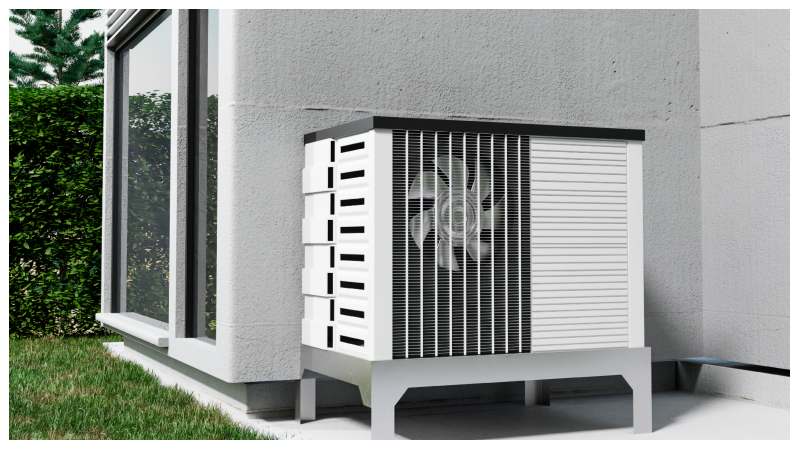Indoor air quality has a direct impact on the health and comfort of everyone inside a building, yet it is often overlooked until problems arise. Pollutants such as dust, pollen, mold spores, and chemical vapors can build up indoors, leading to allergies, respiratory issues, and general discomfort. Your HVAC system is one of the most powerful tools for controlling these hidden risks, as it is responsible for circulating and filtering the air you breathe daily. When properly maintained and optimized, it not only regulates temperature but also ensures cleaner, fresher air. Taking steps to enhance your HVAC system’s impact on air quality creates healthier spaces where people can live and work more comfortably.
The role of system cleanliness
One of the most critical factors in improving indoor air quality lies in the cleanliness of the HVAC system itself. Over time, dust, dirt, and debris collect within ducts, coils, and filters, gradually reducing efficiency while releasing contaminants back into the air. Regular filter replacements, duct inspections, and coil cleaning prevent this buildup from circulating through rooms and creating unnecessary health risks. A clean system also runs more efficiently, helping to lower energy costs while sustaining healthier airflow. This balance between cleanliness and efficiency provides a dual benefit—improving air quality while extending the system’s lifespan. Homeowners and building managers who prioritize these practices often notice fewer allergy triggers and odors, making their spaces more inviting and comfortable for everyone.
Advanced filtration and circulation
Filters are more than just barriers against dust; they serve as the first line of defense against microscopic pollutants that easily circulate indoors. Modern filtration options can capture even finer particles, reducing allergens, bacteria, and volatile compounds that otherwise linger in the air. Equally important is balanced air circulation, which ensures every room receives consistent airflow rather than allowing stagnant, polluted pockets to form. Proper ductwork maintenance and adjustments to airflow distribution improve comfort while lowering exposure to harmful particles. In many cases, the integration of advanced products, such as Comfort Indoor Solutions, helps align healthy air circulation with overall comfort, ensuring households enjoy fresh, evenly distributed air throughout their homes. This focus on both filtration and airflow allows HVAC systems to support long-term indoor wellness.
Humidity management for healthier spaces
Humidity control is another crucial factor in maintaining better air quality with your HVAC system. Excess moisture encourages mold growth and attracts dust mites, while overly dry air can irritate the respiratory passages and dry out the skin. Your HVAC system, when properly adjusted and maintained, can strike a balance that avoids both extremes. Installing or upgrading humidifiers and dehumidifiers ensures consistent comfort while preventing harmful conditions that allow contaminants to thrive. This level of control creates healthier environments by maintaining moisture levels and reducing the spread of allergens. Additionally, proper humidity management supports building integrity by minimizing damage caused by condensation or dryness. The ability of HVAC systems to regulate moisture highlights their role not only in comfort but also in safeguarding health and property.
Long-term commitment to air quality
Improving indoor air quality through your HVAC system requires an ongoing commitment rather than a one-time fix. Regular inspections, timely filter changes, and adjustments based on seasonal needs help maintain consistent air quality year-round. Technological upgrades, such as smart thermostats or advanced filtration devices, can further enhance performance by adapting to changing conditions within the home or office. By treating your HVAC system as an active partner in health and comfort, you ensure that air remains clean, balanced, and safe for everyone inside. This long-term focus also helps reduce costly repairs and supports the overall efficiency of your system. The result is an environment where comfort and health are maintained in harmony, creating a sense of assurance with every breath.
Indoor air quality plays a vital role in supporting daily health, comfort, and productivity. An HVAC system, when properly maintained and optimized, becomes a powerful tool in reducing allergens, balancing humidity, and filtering out harmful particles. By keeping systems clean, improving circulation, and integrating advanced solutions, homeowners and businesses alike can achieve cleaner and more comfortable indoor spaces. Over time, this attention to air quality not only protects health but also enhances system efficiency and reliability. With consistent care, the HVAC system remains more than just a temperature regulator—it becomes a reliable safeguard for the quality of the air you breathe.

